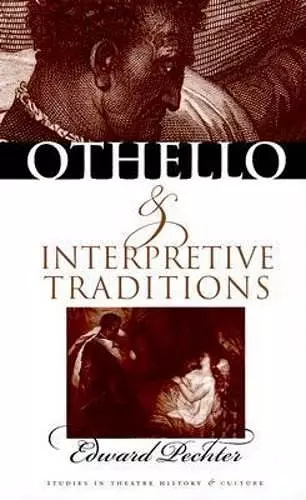"Othello" and Interpretive Traditions
Format:Hardback
Publisher:University of Iowa Press
Published:1st Aug '99
Currently unavailable, and unfortunately no date known when it will be back

Since the late 1970s, "Othello" has become the Shakespearean tragedy that speaks most powerfully to contemporary concerns. Focusing on race and gender (and on class, ethnicity, sexuality and nationality), the play talks about what audiences want to talk about. In this study, Edward Pechter describes the play's design and effects in a way that accounts for its power to engage the interests of audiences and readers throughout history. Going back to the play's original production, he argues "Othello" is unique in that it divides the central space of its action equally between protagonist and antagonist. This design has made strenuous demands on theatrical productions; the stage history of the play may be plotted as a continuous refusal or inability to allow for Othello's and Iago's equivalent attractive power. While "Othello" and its interpretive traditions are distinguishable from one another as a matter of analytical convenience, Pechter demonstrates how they are mutually dependent, reciprocally constituitive ways of talking about the same thing. As a result, the distinction between the current and historical versions tends to blur if not collapse.
ISBN: 9780877456858
Dimensions: unknown
Weight: unknown
228 pages